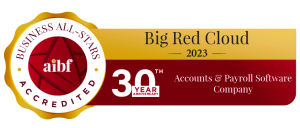Doing the books really isn’t the most exciting thing in the world is it? That’s why we’re here, not only to provide simple accounting software but also to give you some insights into keeping on top of your accounts.
With over 20 years of experience, we should know a thing or two about making your bookkeeping a little bit easier. Even with the best intentions in the world, it’s still all too easy to fall behind with your books.So let’s take a look at the best tips to help you stay up to date.
1. Schedule Time
If you don’t set aside the time to do them, the books are probably not going to do themselves. Set yourself up for success. If you’re busy running a business during the day, make sure any schedule you draw up for doing your bookkeeping is feasible.
Maybe every second Monday is the evening to do your VAT, and Wednesdays are for your expenses. Get into a routine that suits your situation, and stick to it.
2. The more detail, the better
Businesses are required to record all of their transactions, so make sure you keep every bit of information and scrap of paper that you can. Yes, even the petrol receipt for the business van from last week. When you go to enter transactions you’re not going to miss any if you have all of the records in place, and it’s more likely that your balances will actually reflect what you have in the bank.
Likewise, when you are invoicing customers, put all the necessary information on the invoice. Make sure you have the invoice number, payment details, P.O. number, address and contact details. The last thing you want to do is spend your Monday evening doing something which will bounce back to you a few days later without payment.
3. Set up dedicated bank accounts
This is one of the most basic pieces of advice we can offer, we’ve covered it before. Basically, you should have a dedicated business account. Don’t ever mix it with your personal account. That’s a recipe for disaster. If you have more than one business, you should have an account for each one.
It can be difficult enough to keep track of money moving through one bank account from one business. Save yourself the administrative headache and waste of time of not obeying this rule.
You should also consider setting up a bank account just for tax. Essentially, it will act as the place to store the money you know you will owe to revenue. Whether it be VAT or any other tax, once your reports show that you will owe a certain amount, move it into this account. Then when it comes to the payment deadline for your taxes, you’re safe in the knowledge that you have your obligation covered.
4. Keep the VAT threshold in mind
If you’re selling goods or providing services, you will have to collect and pay VAT after you pass a certain threshold of sales revenue. Operating with sales revenue below this threshold means that you are not liable to collect and pay VAT to revenue. Obviously this has ramifications for your business and how much work you need to do to keep on top of your accounts. You can find the threshold through revenue here.
If you’re a small business operating around the threshold, a period of strong growth could greatly change how you manage your accounts and the obligation that you have to collect and pay tax as a business. Bear it in mind.
5. Keep up to date with changes that affect you
Rules, regulations and guidelines regarding accounts preparation and the collection and payment of tax can change. Of course this will have an effect on your business, so it is important that you keep yourself informed of any changes that could affect you.
The most likely time of year for changes to be made, or at least proposed, is the Budget. However, that’s not the only time that things may change. It falls within your accountant’s job description to keep you as their client abreast of anything that will affect you.
Deadlines for tax returns and payments are something you should definitely keep on top off as a business owner. Don’t let them creep up on you so that you have to spend the week before rushing to get your books sorted. Think of the amount of time you could be taken away from the rest of your business for.
6. Payment terms that suit your business
If you’re running a cash business, it’s a lot easier to stay on top of taking payment. You should be more concerned with how to handle your cash properly once you’ve made a sale. Primarily, having guidelines in place will decrease the chances of losing the business’ actual cash and revenue. If everything is in order, doing the accounts is a lot easier.
An invoicing based business has to be run a bit differently. As you’re not receiving cash up front it’s even more critical to manage your cash flow. Invoicing is one of the most important steps to doing this. Ideally, you should invoice as soon as you’ve made a sale. However, once you do, what does that actually mean for your business?
Payment terms are the conditions under which a seller will complete a sale. Generally, they refer to the time period that will pass before they are due to be paid. 30 days can be a standard time frame in some industries, but what is the most suitable for your business?
Have you taken on a particularly large project? Would it be better to be paid half the amount up front to allow you to purchase the inputs you need to complete the work, and collect the rest when you finish? If you’re having difficulty with one particular supplier it might be wise to shorten the period before payment falls due or offer a discount for early payment. Whatever suits your business, make sure that your payment terms are on each invoice you send out.
Looking after your payment terms is a critically important part of your business and it also keeps your books up to date. The last thing you want is an invoice that still hasn’t been paid and allocated against a sales transaction you have entered.
7. Backup….and again
Don’t do yourself an injustice by keeping tidy, up to date accounts only to lose all your work if something goes wrong. Let’s face it, computers crash sometimes or power could be lost. Protect yourself as much as possible against a set back by backing up your data as often as you can.
Just to be sure, why not take two backups in different places to absolutely ensure that no matter what happens all those Monday evenings weren’t wasted. You know what can help with that? Big Red Cloud’s accounting software! Seriously, many online accounting software providers will include multiple backups as standard. It’s just one more thing you won’t have to worry about, but it could end up being a life saver.
8. Use accounting software
Just in case you didn’t quite catch our not so subtle plug in the last paragraph we’re back at it. There is actually a lot to be said for using an accounting software to keep on top of your books though. It is kind of why we’re in business after all.
We’ve talked at length before about how much more efficient it is to use a dedicated accounting software over spreadsheets, but there’s no harm in a quick recap. Accounting software is set up to automatically complete the correct double entries and do complicated tasks like calculate and allocate VAT as well as providing in depth reports on the performance of your business.
It is possible to run your accounts through spreadsheets but it’s a risky game. One wrong formula means that you’re books will be wrong, and you could struggle to figure out why without anyone to support you. It’ll probably be more time consuming having to set up and reconfigure your spreadsheets for new entries and no matter how good you are at Excel you’re just not going to approach the functionality of accounting software. It just makes sense to use a dedicated package.
–
Looking for more business resources? Why not check out our small business guides resource for insight and tips across a variety of topics





